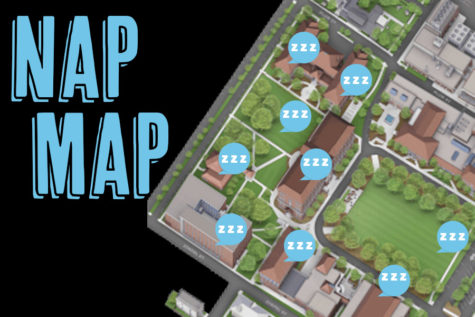OPINION | There are ways for students to avoid burnout
September 28, 2022

By now, the semester is well underway, and Tulane University students are likely finding their academic groove. Of course, getting into a routine for school provides stability, but it also indicates that those first couple of weeks are over, and students can start to expect more rigorous academic assignments.
Although midterm grades are not officially due until Oct. 12, many students have been assigned essays and exams this past week. Even without midterms looming, university academics are certainly still stressful.
We’ve heard time and again about how critical sleep is for college students’ success. Lack of sleep can have serious impacts on academic performance.
Getting enough sleep is essential, but, unfortunately, not always feasible for busy college students. However, that does not mean that we should forfeit the practices of rest and mindfulness altogether. It is possible to attend to your mental health amidst a busy school schedule.
It’s easy to compromise our mental health in a competitive and challenging academic environment, but students should remind themselves of the importance of self-care — and be conscious of burnout.
Burnout is the result of an abundance of stress sustained over a long period of time. Burnout can lead to a lack of interest and motivation for academics and life in general, and it’s a very real experience for many college students. Eighty percent of college students reported feeling overwhelmed and 40 percent found it difficult to function, according to the National College Health Assessment.
One of the keys to combating burnout is setting boundaries and attending to your mental health. Students should make an effort to designate times throughout the day for napping, meditation, leisure reading or simply just chatting with friends. In the short breaks between a day full of class, students can take advantage of various lounge areas around campus to give themselves a mid-day reset.
Tulane’s Campus Health Portal features a section dedicated to helping students get adequate sleep with resources and helpful tips. One of these resources is the Tulane Nap Map, which shows many of the great places around campus to nap or relax. The map also includes information about each napping spot, including important features — for instance, if there are couches, benches or chairs — and the optimal time of day to enjoy each spot. The spots pinned on the map, which are scattered across Tulane’s campus, were voted on and approved by Tulane students.
A successful student is one who can create balance in their life. There is a balance to be struck between being a devoted student and a mindful practitioner of self-care. We can be patient with ourselves and others and, ultimately, that will make us more dedicated and empathetic learners, and happier individuals.






















Leave a Comment